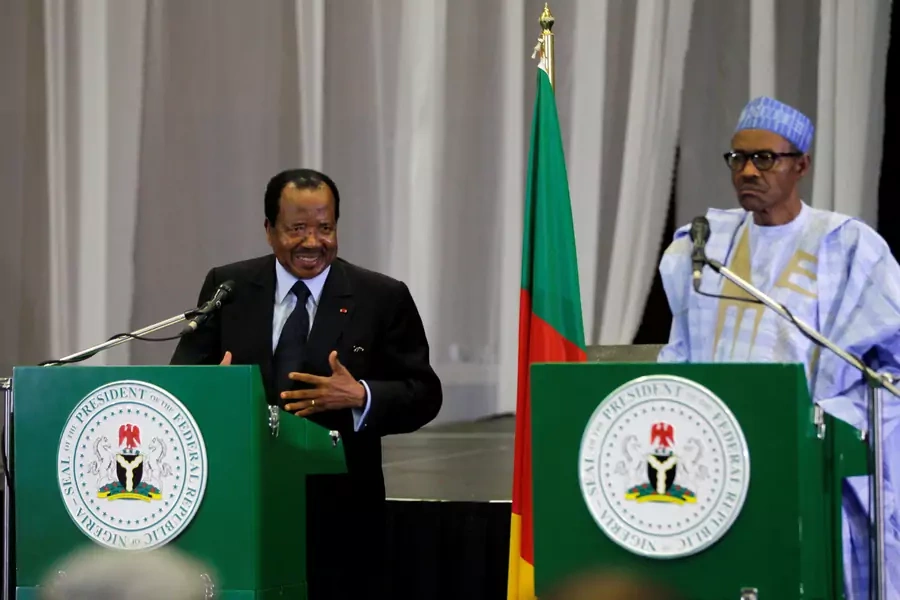Refugees From Anglophone Cameroon Enter Nigeria, Straining Relations

Adam Valavanis is a volunteer intern in the Africa program at the Council on Foreign Relations in Washington, DC.
On October 7, Cameroonians voted in the presidential election. Despite the opposition’s claim of victory prior to the release of official results, incumbent President Paul Biya is expected to prevail. One group that was underrepresented at the ballot box this year was Cameroon’s English-speaking minority, which has been ravaged over the past year by violence between government forces and Anglophone separatist groups, particularly in the country’s North West and South West regions. Fighting has killed approximately four hundred civilians and displaced some 246,000 people in the South West region alone as of August 2018.
More on:
Secession and Independence Movements
In addition to those internally displaced, Anglophone Cameroon has seen an exodus of more than forty thousand people into neighboring Nigeria. But travel has grown more difficult during election season, with security forces and separatist groups blocking roads in and out of the North West and South West regions. For those that manage to make it into Nigeria, many stay with relatives living in border towns, but resources are scarce; some refugees have no access to clean drinking water, food, or sources of income. Furthermore, amidst the chaos of fleeing Cameroon, families have been separated and have little hope of ever being reunited.
Furthermore, over the past year, there have been reports of security forces and separatist groups razing villages across the two Anglophone regions. Such actions have threatened the prospect of future repatriation, increasing the burden of Nigerian border communities.
Such a crisis comes on the back of increasingly strained relations between the two countries. Early in 2018, armed groups from Cameroon were reportedly using Nigeria as a launching pad for attacks against the Cameroonian government. Cameroonian officials went so far as to accuse Nigeria of sheltering separatist groups, though Nigeria vehemently denies such allegations. Tensions peaked after the Cameroonian military crossed into Nigeria while pursuing rebels without permission from the Nigerian government in December 2017. What started as a local protest movement is now challenging Cameroon’s relationship with Nigeria and could erode cooperation in the fight against Boko Haram.
More on:
Secession and Independence Movements
 Online Store
Online Store